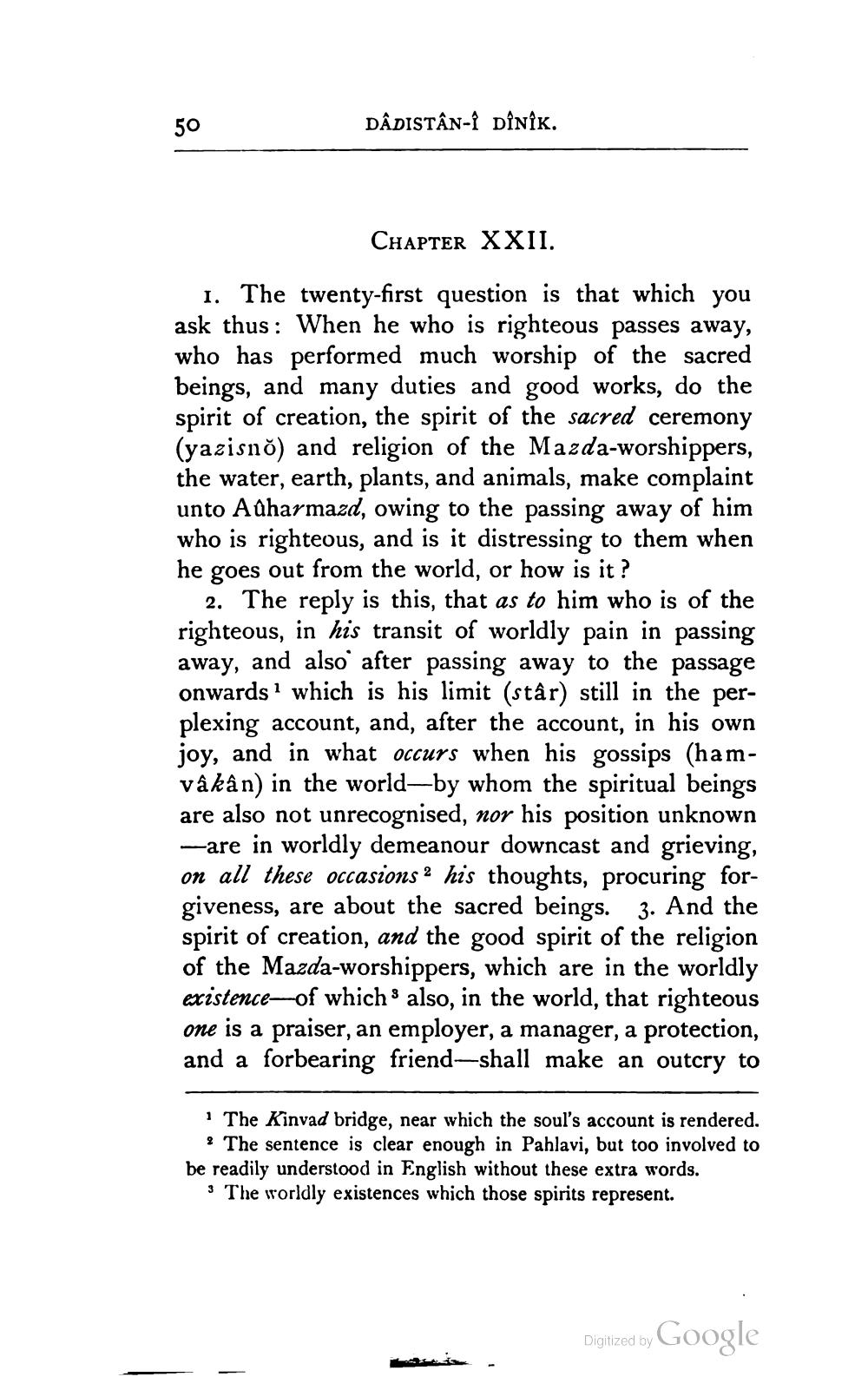________________
50
DÂDISTÂN-I DÎNÎK.
CHAPTER XXII.
1. The twenty-first question is that which you ask thus: When he who is righteous passes away, who has performed much worship of the sacred beings, and many duties and good works, do the spirit of creation, the spirit of the sacred ceremony (yazisno) and religion of the Mazda-worshippers, the water, earth, plants, and animals, make complaint unto Adharmazd, owing to the passing away of him who is righteous, and is it distressing to them when he goes out from the world, or how is it?
2. The reply is this, that as to him who is of the righteous, in his transit of worldly pain in passing away, and also after passing away to the passage onwards ? which is his limit (stâr) still in the perplexing account, and, after the account, in his own joy, and in what occurs when his gossips (hamvâkân) in the world—by whom the spiritual beings are also not unrecognised, nor his position unknown -are in worldly demeanour downcast and grieving, on all these occasions 2 his thoughts, procuring forgiveness, are about the sacred beings. 3. And the spirit of creation, and the good spirit of the religion of the Mazda-worshippers, which are in the worldly existence of which also, in the world, that righteous one is a praiser, an employer, a manager, a protection, and a forbearing friend-shall make an outcry to
1 The Kinvad bridge, near which the soul's account is rendered.
? The sentence is clear enough in Pahlavi, but too involved to be readily understood in English without these extra words.
3 The worldly existences which those spirits represent.
Digitized by Google




